A mystery English millionaire, royal ‘connections’ and the row that could shatter a paradise island forever
A planning row between a London developer and a protective local community has raged for six years on Barbuda, write Senior Climate Correspondent Louise Boyle and Investigations Editor David Cohen

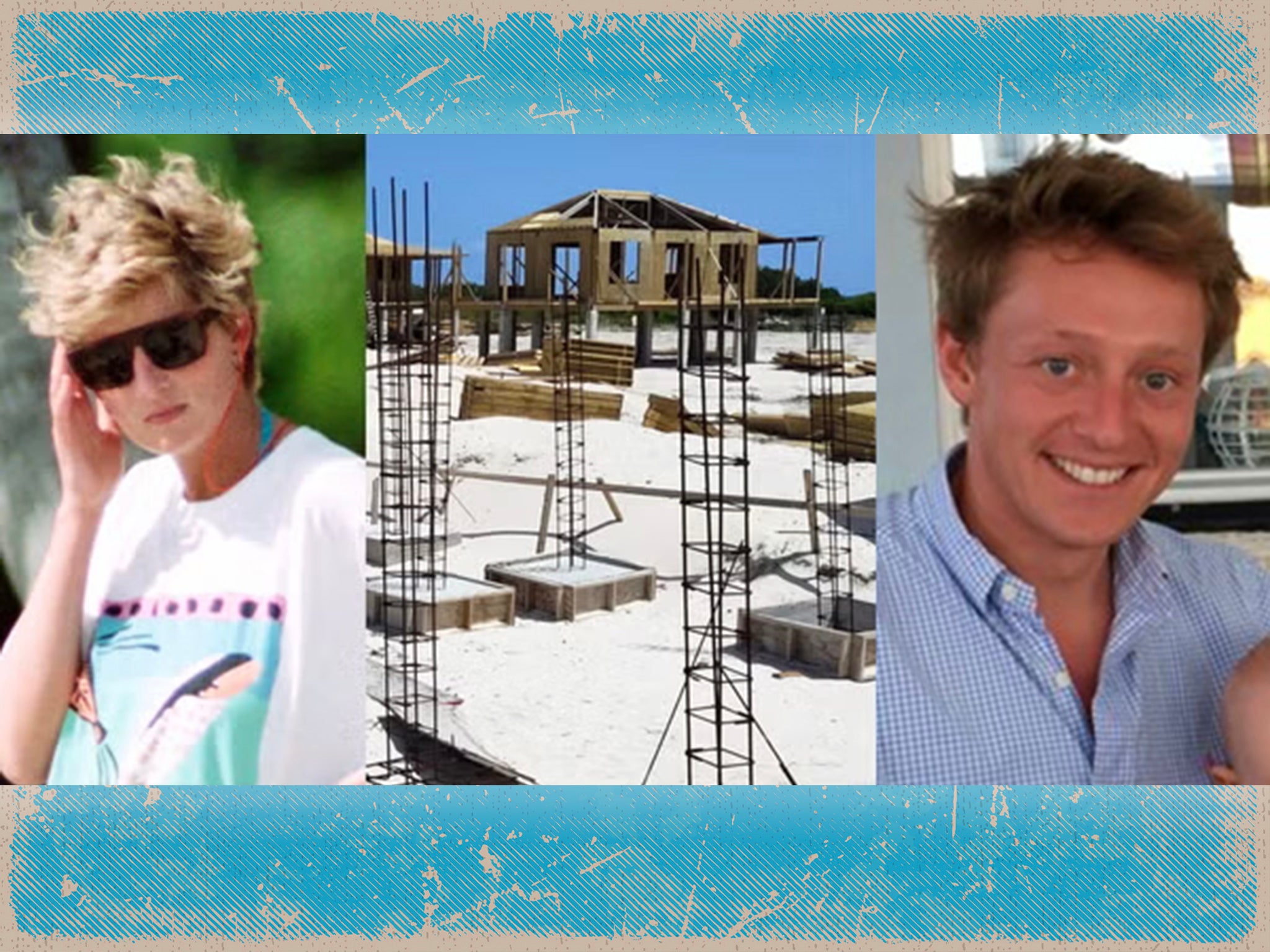
Your support helps us to tell the story
From reproductive rights to climate change to Big Tech, The Independent is on the ground when the story is developing. Whether it's investigating the financials of Elon Musk's pro-Trump PAC or producing our latest documentary, 'The A Word', which shines a light on the American women fighting for reproductive rights, we know how important it is to parse out the facts from the messaging.
At such a critical moment in US history, we need reporters on the ground. Your donation allows us to keep sending journalists to speak to both sides of the story.
The Independent is trusted by Americans across the entire political spectrum. And unlike many other quality news outlets, we choose not to lock Americans out of our reporting and analysis with paywalls. We believe quality journalism should be available to everyone, paid for by those who can afford it.
Your support makes all the difference.Was it the preposterous royal boasts? The possible threat to nesting turtles? Or simply local resistance to yet another foreign developer cherry-picking a choice parcel of land that has created such a storm on the tiny Caribbean island of Barbuda?
The extraordinary six-year battle has featured tales of a holidaying Princess Diana, accusations of playing Russian roulette with islanders’ futures and a devastating hurricane.
At the centre of the row lies ambitious plans to build a 15,000 square foot villa complex set in 114 acres, equipped with multiple swimming pools, guesthouse, tennis courts, gym and staff quarters – as well as a “security buffer zone” to keep away prying eyes.
But the project spearheaded by 42-year-old Henry Anderson, with his cut-glass English accent and penchant for over-dressing in a hot climate, has enraged many on the 62 square-mile slice of paradise.
The scheme has become entangled in disputes with the country’s central government, local councils, environmental experts and international human rights advocates – even Buckingham Palace has got involved.
The Independent has sought to unravel truth from fiction by speaking to key players, including local decision makers, legal experts, Mr Anderson and the royal family.

The royal link
Mr Anderson did not hold back in mentioning royal connections when first proposing his multi-million-pound project, located at Cedar Tree Point in the protected area of Codrington Lagoon National Park, in 2017.
Arthur Nibbs, chair of Barbuda Council when Mr Anderson initially sought approval, said he gave the green light because he believed the property was for royalty.
“What was put forward was that they’re going to be building some villas for the Queen and so on,” he told The Independent.
“They wanted a property that could accommodate the royals whenever they come to Barbuda. For me that went a long way because we didn’t want to have any large-scale development for mass tourism.”
Jackie Frank, a former Barbuda councillor, recalled how Mr Anderson freely bandied about the names of the princes who came to Barbuda with Princess Diana in the Nineties.
“He constantly talked about how good it would be to have the two princes back. It became clear that he was talking about Prince William and Prince Harry. What he was wanting, he said, was to start building a property for the princes,” Ms Frank said.
“He repeatedly mentioned a gentleman called Lord Abercorn who works for or with the Queen.”
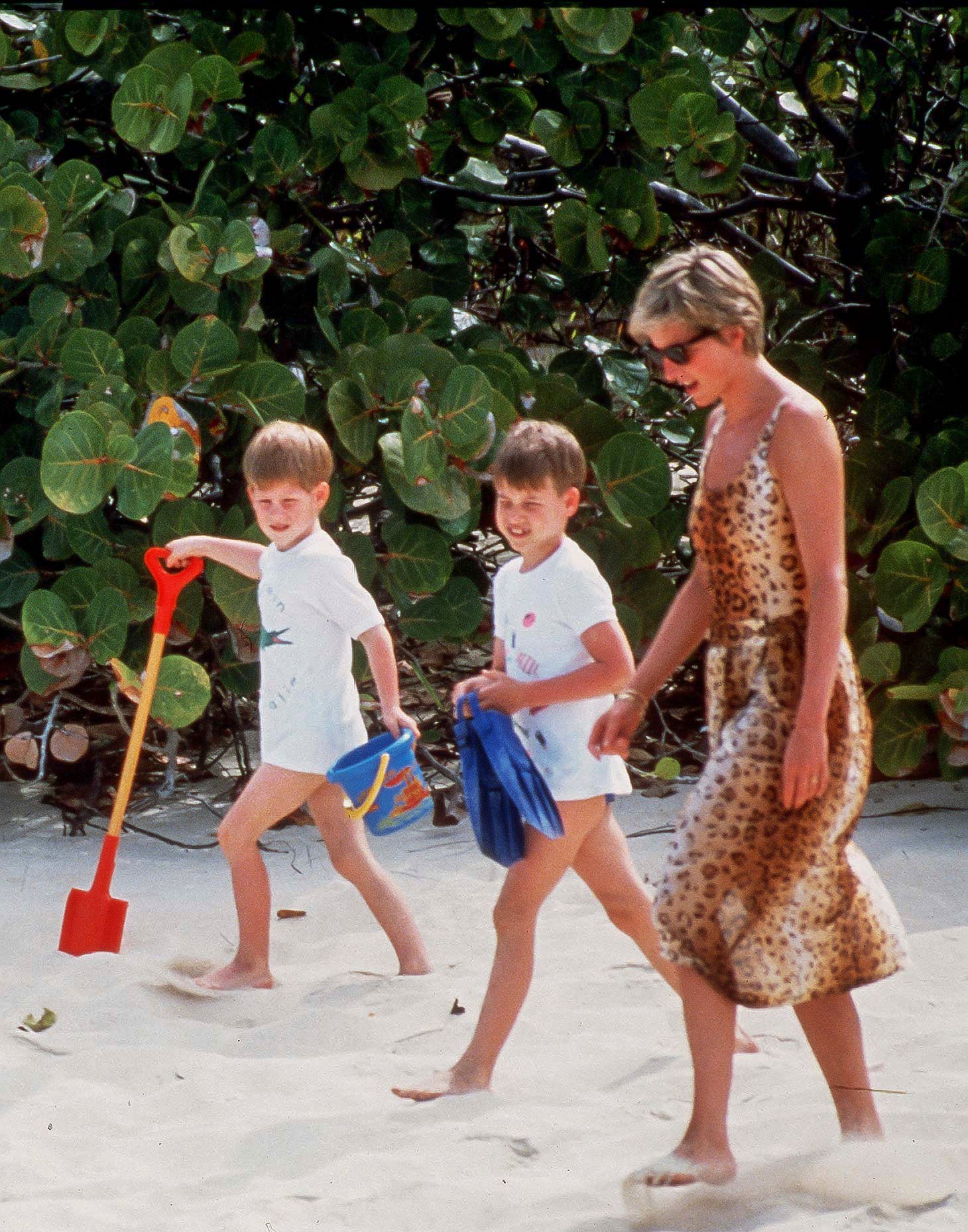

The 5th Duke of Abercorn, James Hamilton, 88, is said to have been an old friend of the late Queen. King Charles is also godfather to his son James, Marquess of Hamilton.
The Cedar Tree Point land was leased to Mr Anderson’s company, which he named Abercorn Trust Incorporated, registered in Antigua and Barbuda.
Royal family connections carry weight on Barbuda, part of a Commonwealth country with its larger, wealthier sister island of Antigua.
The Barbudans are proud of their history as one of Diana’s favourite holiday destinations and a beach is named after her just five miles from the planned villa. Prince Harry returned to Barbuda in 2016, one of his last solo royal tours. At the time, he fondly recalled how he and Prince William holidayed with their mother in the secluded destination in April 1997, a few months before she died.
But Mr Anderson’s bid went beyond royal name-dropping.
Part of the land lease – dated, stamped and lodged with the Antigua and Barbuda central government – includes a document titled “Lease of Land for the Construction of a Residence for the Royal Family of Britain”.
It states: “Cabinet agreed that a parcel of land on the island of Barbuda measuring approximately 16 acres should be identified and leased for the purpose of constructing a residence for the Royal Family of Britain.”

Buckingham Palace was somewhat bemused by the claim. Contacted by The Independent, a palace spokesperson denied all knowledge of Mr Anderson and his Barbuda development, adding: “This is not a name or a property that we recognise”.
Similarly the Duke of Abercorn told The Independent that he has “no knowledge of, or connection to, Henry Anderson” and that “this is the first” he has heard of “any such development” and that he “has no property interests in Barbuda”.
When The Independent approached Mr Anderson, he blamed an unnamed contractor for filing the misleading court document, but insisted the royal link was genuine.
“Mr Anderson’s intention has always been to build a private residence for his own use on Barbuda which, given the holidays they enjoyed on the island, would be offered to certain members of the Royal Family to use on occasion if they so wished,” his spokesperson said.
“At no time has Mr Anderson claimed that this project was authorised by Buckingham Palace and the document referred to which mentioned the Royal Family was submitted early on in the project by a contractor without his knowledge. He has been perfectly clear with all parties involved that the idea of offering use of the property to members of the Royal Family was simply meant as a gesture that might or might not be taken up.”

The developer and his challengers
Beyond royalty, Mr Anderson, who lives in a £3.6m terraced home in South Kensington, has found himself at odds with vocal opponents on Barbuda, who say his development threatens turtle nesting sites, a rare colony of magnificent frigatebirds and has compromised hurricane and flood defences of the island.
Despite coming across as well-spoken and expensively-dressed, his charm, described by the Barbudans who met him, was put to the test last September after a barge carrying construction equipment ran aground on the beach at the site.
In a feisty exchange with the Barbuda Council, Mr Anderson was berated for seeking to develop his project in the Codrington national park.

Among them was environmental expert and councillor John Mussington who said: “Would you allow something to be opened up in the River Thames that is going to flood the city?”
Mr Mussington cited several environmental groups, such as the Caribbean Conservation Association and Birds Caribbean, whom he said objected to the plan.
Another councillor lambasted Mr Anderson: “We are advising you not to play Russian roulette with the lives of people of Barbuda.”
Insisting his plans were “environmentally safe” and would not affect a local bird sanctuary, he told councillors: “I am an ornithologist and have been a member of the RSPB since I was six. I love the frigate birds.
“I’m not a massive corporation. Please, please trust me. I am a good guy. I am not a massive developer. I fell in love with this island. I would not want to destroy it.”
His words did little to appease the Barbuda Council or the Department of Environment (DoE).
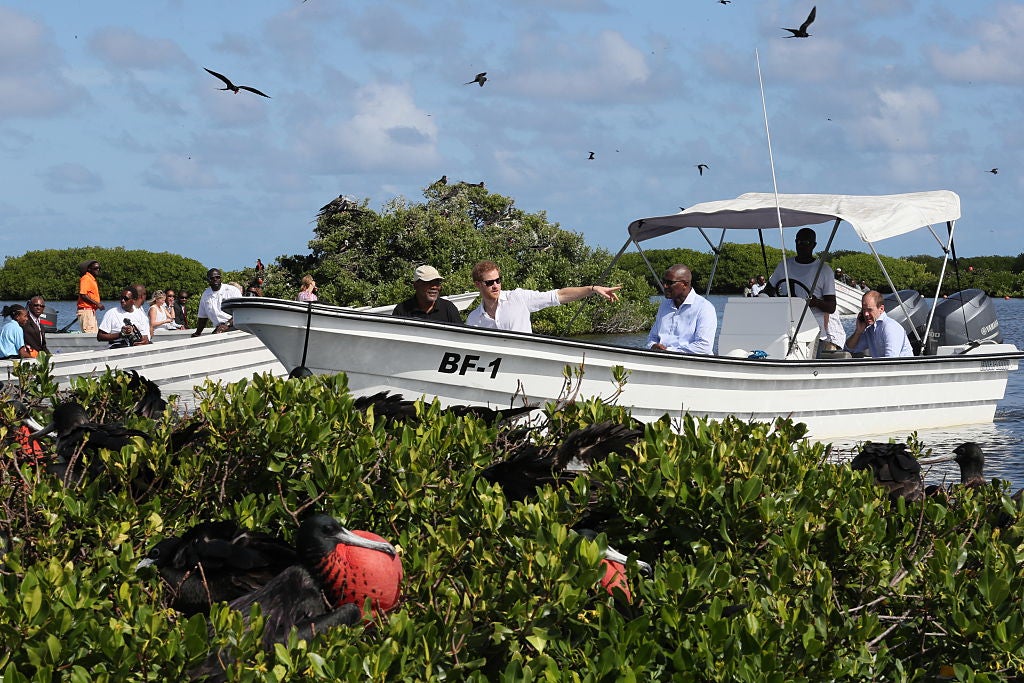
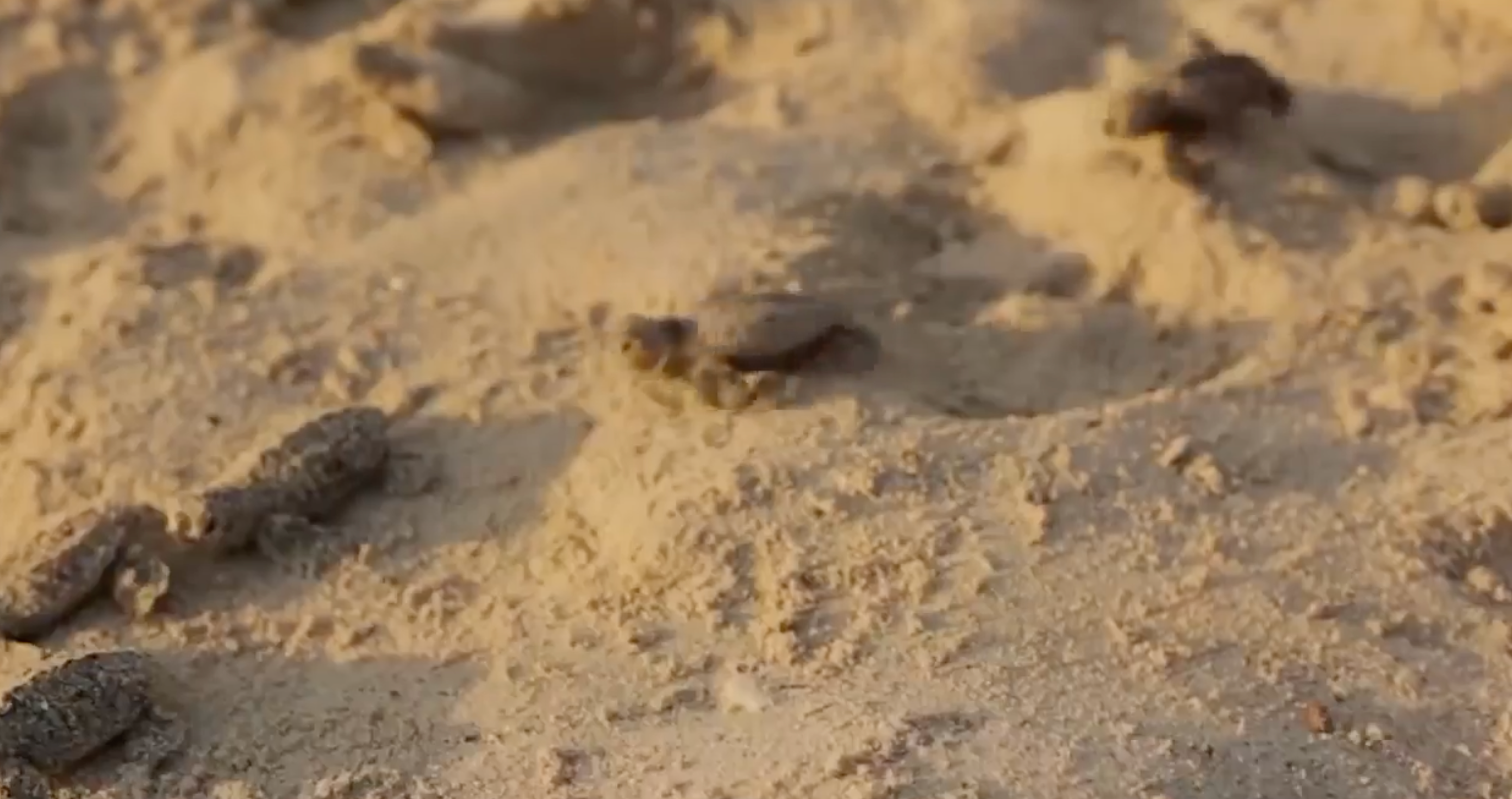
At the end of the meeting, the council said: “We’re not going to give any permission to build any structure out there. Stop now. You’re creating so much damage to the park and it’s going to cost millions to restore it.”
A DoE letter that same month reiterated their continued opposition to construction.
But Mr Anderson had national figures and agencies on his side including the country’s Development Control Authority (DCA) which approved his plans. Decisions of the DCA override those taken by the local Barbuda Council.
Power relations between the Barbuda council and central government are fraught, ever since a law which enshrined the Barbudan population with communal ownership of their island was changed in the wake of Hurricane Irma in 2017, and opened the door for a boom in luxury, foreign development.
The devastating storm killed three people, destroyed nearly every home and business on Barbuda and all 1,800 residents were evacuated to Antigua before being allowed to return.
Mr Anderson has been a beneficiary of this new direction. He has said he has obtained all approvals needed for his development including from Barbuda Council. His spokesperson said: “The suggestion that Mr Anderson does not care about the environment is false and misleading.

“The property is set 340ft back from the seafront without having caused any disturbance to wildlife. Great care has been taken in this respect and turtles and frigates will be completely unaffected. Indeed, The Barbuda Council’s claims about the alleged environmental impact of the project were withdrawn, and the council was ordered to pay Mr Anderson’s costs.”
However, the Barbuda Council dispute that all the appropriate approvals have been given. The Global Legal Action Network (GLAN), a group of human rights lawyers providing support to Barbudans, told The Independent that further legal action is planned.
Spokesperson Dr Gearóid Ó Cuinn said: “Clearance of vegetation and mangrove inevitably impacts wildlife, as does driving heavy machinery across turtle nesting sites.”
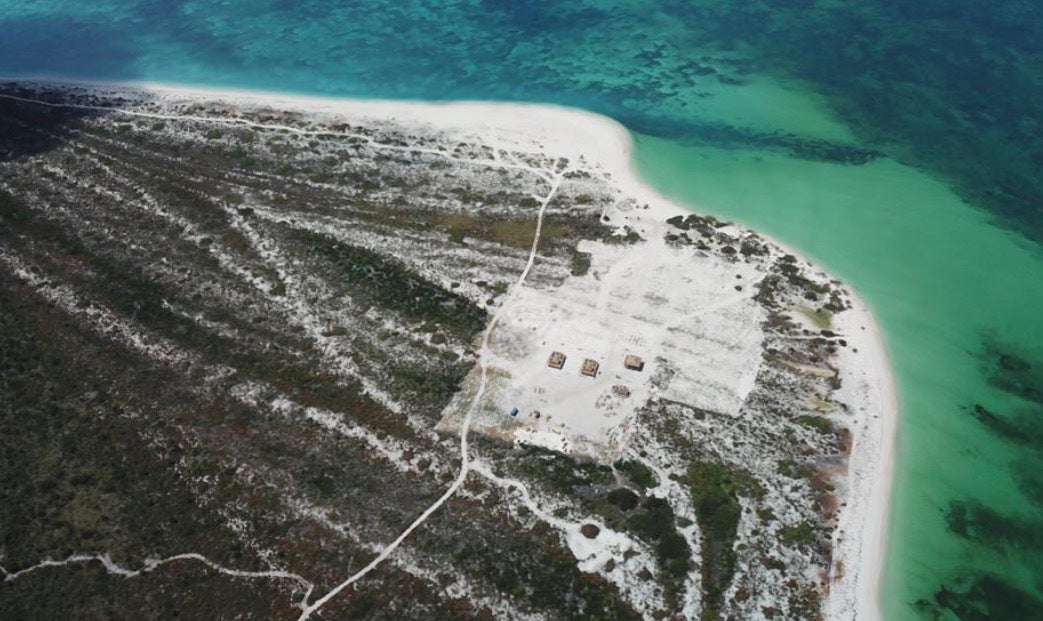
The project – which Mr Anderson says is 90 per cent complete – continues. However photos, drone footage and video taken in May and June 2023, and shared with The Independent, reveal the shells of wooden buildings, exposed pilings, stacks of construction materials and heavy machinery at the site.
“Anyone visiting the construction site would be able to tell this is not correct,” Barbudan Gulliver Johnson told The Independent.
“The statement is clearly meant to discourage us by insinuating protests would be futile at this stage. We will not be fooled: we have seen the extent of environmental damage with our own eyes and we know what is yet to come. Our fight is not over.”



Join our commenting forum
Join thought-provoking conversations, follow other Independent readers and see their replies
Comments